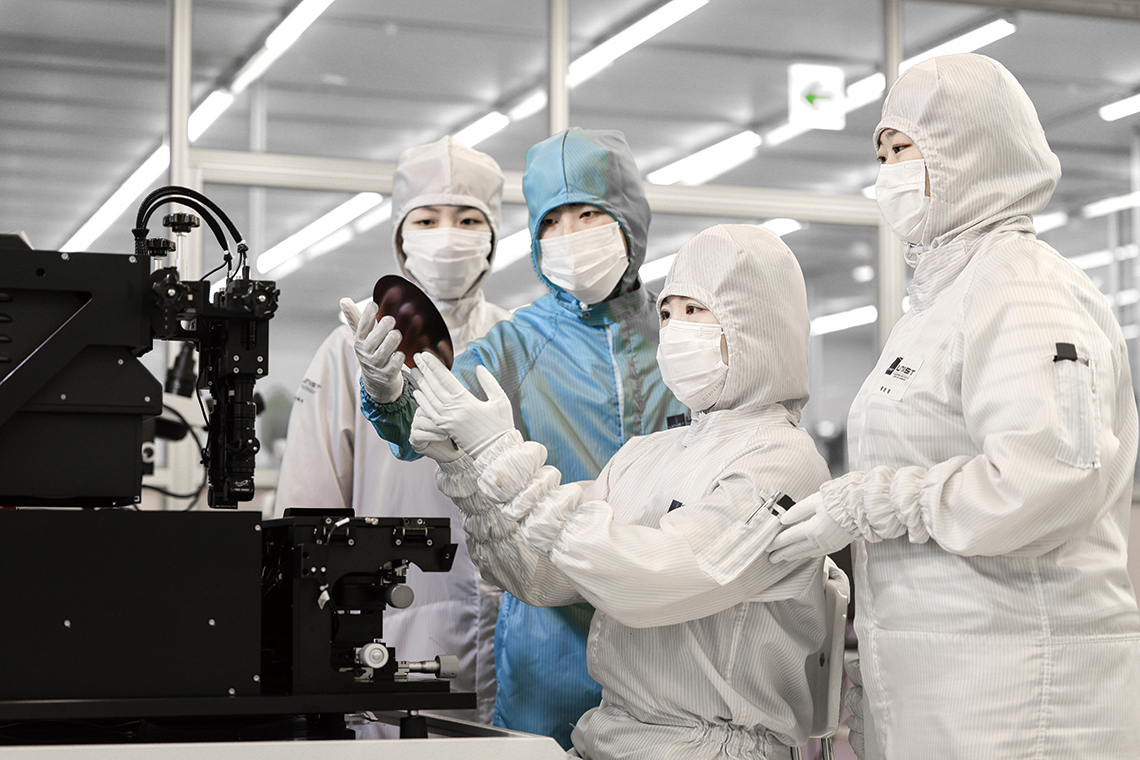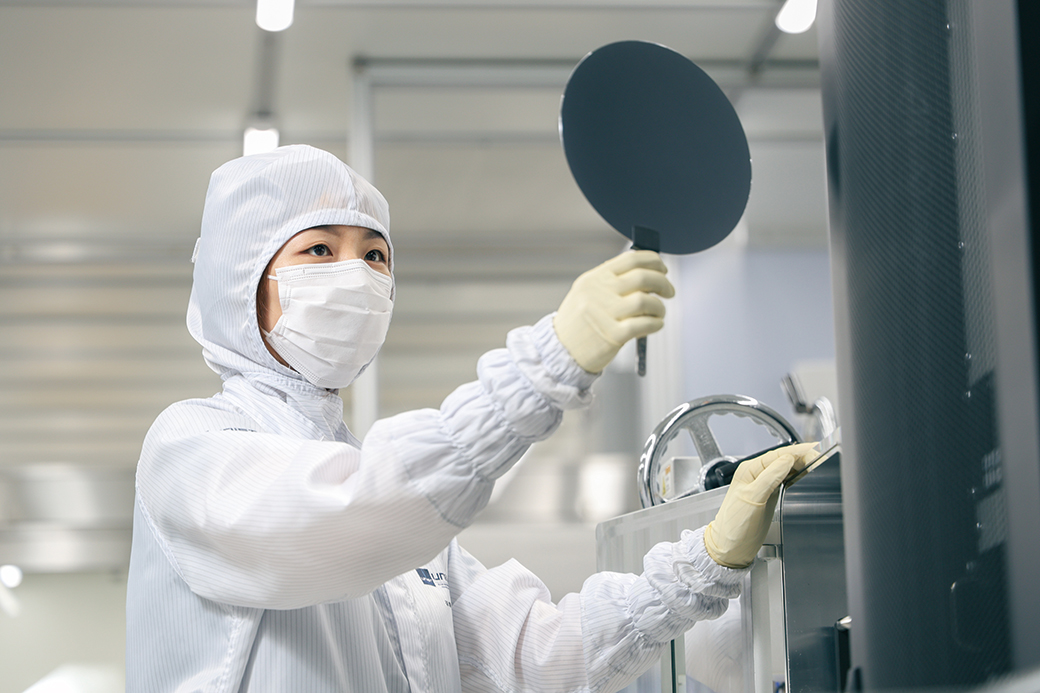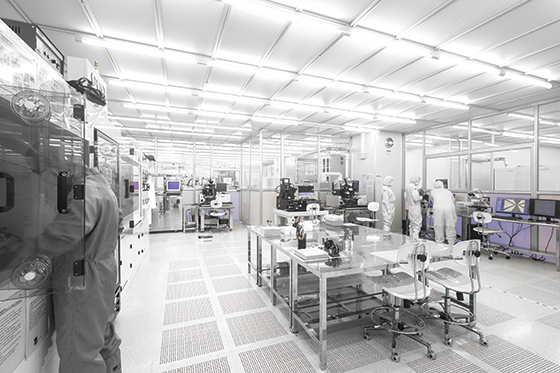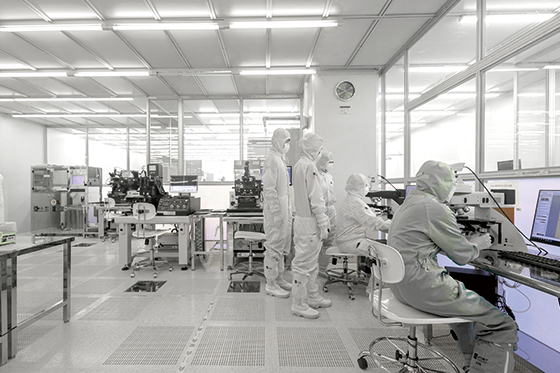
- Issue
- Selected as a “Semiconductor Specialized University
Support Project,” UNIST, Taking the Lead in Nurturing
Future Semiconductor Talents
본문영역
Selected as a “Semiconductor Specialized University
Support Project,” UNIST, Taking the Lead in Nurturing
Future Semiconductor Talents
UNIST has been accelerating the cultivation of next-generation professional talents in the semiconductor industry. Recently, it was selected for the “2024 Semiconductor Specialized University Support Project” hosted by the Ministry of Education. UNIST will receive a total of ₩15 billion (₩14 billion of national subsidy and ₩1 billion of local subsidy) over the next four years. With this selection, UNIST's progress toward fostering practical professionals in the semiconductor industry and securing global competitiveness is expected to grow stronger.
- Written by _ the Editorial Office Photo _ Hong Seung-jin

Challenges and Achievements, Laying an Outpost for Semiconductor Talents
With the selection as “2024 Semiconductor Specialized University Support Project,” UNIST plans to establish a semiconductor talent nurturing system that encompasses the bachelor's degree and, at the same time, strengthen the foundation for education throughout the entire cycle. In 2021, UNIST established the “Graduate School of Semiconductor Materials and Devices Engineering.” In 2023, it established the “Semiconductor Contract Program” in cooperation with Samsung Electronics.
The establishment of the Semiconductor Contract Program in 2023 is an agreement in accordance with Samsung Electronics' plan to build a semiconductor talent development infrastructure in non-metropolitan areas and nurture professional talents who will lead the next-generation semiconductor industry. Samsung Electronics, which previously operated contract programs at four universities, including Sungkyunkwan University and KAIST, expanded its program to include UNIST, DGIST, and GIST. The newly established contract program at the Institute of Science and Technology, including UNIST, is the first “integrated bachelor's and master's semiconductor contract program” that combines bachelor's and master's education. Students who enter the Semiconductor Contract Program will receive a master's degree after five years of education. The curriculum is centered on semiconductor process control technology, and focuses on nurturing integrated semiconductor talents through convergence classes related to semiconductor design, software, and new semiconductor materials as well as process technology.
Last year, the first recruitment process began, with 1,681 people applying for the 35-student class, resulting in a record competition ratio of 48.3:1. This year, though applications for science and engineering declined in the aftermath of the medical school crisis, the competition ratio rose further, reaching the record competition ratio of 61.9:1.
Since 2021, UNIST has established and operated the Graduate School of Semiconductor Materials and Devices Engineering, the only graduate school that specializes in the field of semiconductor materials and components in Korea. This is to secure original technologies through cutting-edge research on semiconductor core materials that are lacking in Korea, processes for manufacturing next-generation new devices and ultra-fine devices, and packaging for future semiconductor systems.
The Graduate School has been recognized for its competitiveness shortly based on its research capabilities and cutting-edge infrastructure in many fields such as solid materials. In 2023, along with KAIST and Sungkyunkwan University, it was designated as a “Semiconductor Specialized Graduate School” by the Ministry of Trade, Industry and Energy. To implement policies to secure super-gap technologies in the semiconductor field, the government has designated universities that can train high-quality manpower at the master's and doctoral level as “Semiconductor Specialized Graduate Schools,” and has been operating this project since 2023 to provide ₩15 billion for five years for each university.
Currently, the UNIST Graduate School of Semiconductor Materials and Devices Engineering selects 65 new graduate students every year. Moreover, by continuously recruiting full-time faculty members with extensive experience in the industry, UNIST is strengthening its differentiated research capabilities.
Vision & Plan, and Talent Nurturing Reinforcement to Take a New Leap Forward
Recently, UNIST was selected for the Ministry of Education's “2024 Semiconductor Specialized University Support Project,” and again made significant progress in developing talents in the semiconductor field.
The main goal of the “Semiconductor Specialized University Support Project,” which began in 2023, is to establish a semiconductor manpower training system and corresponding training facilities. The Project was divided into metropolitan & non-metropolitan areas, and standalone & mutual growth types. UNIST was selected through a re-contest of the non-metropolitan area standalone type. Over the next four years, UNIST plans to cultivate 220 academic-level practical professionals in the fields of materials, devices, processes, and packaging. To this end, five departments, including the Department of Advanced Materials Engineering, will participate in establishing a “semiconductor specialized convergence major”. The “semiconductor specialized convergence major” allows undergraduate students to choose an additional program while maintaining their majors. It is now possible to cultivate manpower for the entire life cycle of bachelor's, master's, and doctoral degrees by naturally linking the bachelor's level manpower generated by the semiconductor specialized convergence major to the Graduate School of Semiconductor Materials and Devices Engineering. The curriculum is designed to foster industry-academic collaboration, including intensive lectures, real-world projects, and industrial training.




